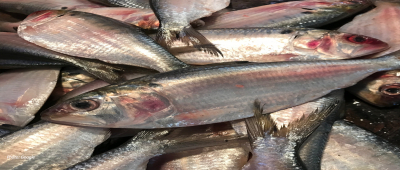Worldwide: Seven members of the seafood industry and seven NGOs are calling upon the Food and Agriculture Organization of the United Nations (FAO) to better protect the fisher’s welfare on wild-caught vessels by improving data collection and analysis of labor-related accidents.
Three major tuna processors, the Bolton Group, Bumble Bee, and Tri-Marine, along with seafood industry groups of Fedespesca, SEA Alliance, and the Hong Kong Sustainable Seafood Coalition have signed the call to action, which includes asking for a mechanism to gather better data and reduce fisher morality. The NGOs involved in the campaign are Earthworm, ADM Capital Foundation, ClientEarth, the Fishing Industry Association Papua New Guinea (FIA PNG), Friend of the Sea, FishWise, the Global Seafood Alliance, and the Teng Hoi Conservation Organization.
Many of the signed organizations are already advocating for ratification and implementation of key international agreements to improve fisher safety and welfare. These include the IMO Cape Town Agreement, the ILO Work in Fishing Convention, the FAO Port State Measures Agreement, and the International Convention on Training, Certification, and Watchkeeping for Fishing Vessels Personnel.
“For decades, the scientific community, NGOs, governments, and global stakeholders have focused their efforts and care on tuna stocks and their health status. It is time to recognize the importance of the human factor in fisheries and that fisheries cannot exist without people," FIA PNG Sustainability Director Marcelo Hidalgo said in a press release. "Our tuna fleet in PNG cares about the safety and welfare of our crew and skippers. Since 2019, we have increased assessment and improvement of the decent working and living onboard our fishing vessels aligned with ILO 188 and FISH Standard for Crew, as a private-sector initiative. It is time that FAO and regulators, such as the regional fisheries management organizations, also request this to global fisheries."
he organizations involved in the campaign called on the FAO to “support the development of a mechanism that can establish a data collection scheme and repository on global fisher accident and mortality rates.”
Previous research by the International Labor Organization (ILO) in 1999 and later by the FAO, found annual fisher deaths in the region of 24,000 and 32,000 respectively, or 65 and 87 deaths per day. With the 35th Session of the Committee on Fisheries of the FAO, it was highlighted that new research suggests the number of fatalities within the fishing sector to be greater than 100,000 annually. This research will soon be published by the Pew Charitable Trusts, Lloyds Register Foundation, IMO, FISH Safety Foundation, and FAO, with contributions from many FAO members. The high mortality rate may be a result of climate change and illegal, unreported, and unregulated (IUU) fishing activities that push fishing vessels into unsafe waters, according to the groups. Also, insufficient oversight of vessel construction and operations is a driver towards a higher mortality rate, they said.
“Fishers around the world play a critical role in supporting food security, livelihoods, and sustainable fisheries management. Ensuring that they can carry out their work safely should be a priority for every business involved in the seafood supply chain. We strongly support the creation of a mechanism to improve information on accidents and fatalities at a global level, so that we can improve visibility and understanding of the risks fishers face, and make sure resources are targeted effectively,” New England Seafood Head of Social Responsibility Amber Madley, who also serves as the advocacy lead for the SEA Alliance.
The organizations involved in the campaing "are committed to ensuring the seafood bought and sold is sourced from responsible producers who do not engage in activities that expose fishers to unsafe and harmful working conditions."
"We believe it is critically important to improve data collection and analysis of accidents and loss of life incidents in the seafood industry," they said. "This has the aim to understand the drivers behind the high fatality rates and ensure the correct safety initiatives are being developed and implemented from robust data."
Source: Seafood Source

